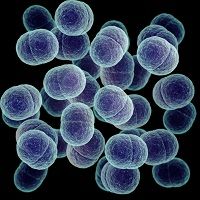Article
Gut Mast Cells Are Influenced by Antiobiotics
Author(s):
Gut microbiota can influence intestinal mast cells (MMC) activation through the ingestion of fat, according to findings published in Gastroenterology.

Gut microbiota can influence intestinal mast cells (MMC) activation through the ingestion of fat, according to findings published in Gastroenterology.
Researchers from University of Cincinnati Academic Health Center studied mice models given streptomycin and penicillin for four days to investigate whether the gut microbiota would contribute to the fat induced MMCs in the population. The study authors also wanted to examine how antibiotics may affect the process. The researchers compared the levels of fat absorption and MMCs before introducing some of the mice to the antibiotics and then allowed both groups of mice to ingest fats. The mice were monitored for their abundance of gut flora compared to another group of mice’s normal drinking water levels. The researchers then collected samples of the mice’s intestinal tissues and lymph fluids and assessed the activation of the MMCs, intestinal permeability, and fat transport parameters.
“Our results suggest that the presence of gut microbiota is involved in MMC activation, induced by the ingestion of fat, and contributes to fat-induced permeability,” principal investigator Patrick Tso, PhD explained in a press release, and added that the study also found a “novel role of the gut microbiome in the promoting the absorption of lipid.”
The mice administered antibiotics had reduced levels of mucosal mast cell protease II (produced by MMCs) and decreased activity of diamine oxidase (produced by enterocytes) compared to the control mice in the experiment, the researchers learned. Additionally, the mice given antibiotics had reduced intestinal permeability compared to the controls, suspected to be a response to ingesting the fat.
“This effect is specific to fat, since the absorption of carbohydrates or protein does not activate mucosal mast cells,” Tso concluded.
There were no difference in liver activity found between the two groups, and the effects did not appear with an acute dose of antibiotics nor did it appear four weeks after the antibiotics regiment ceased. The antibiotics also reduced the lymphatic transport of triacylglycerol and phospholipid, which the researchers said was an unexpected outcome from the study.
Related Coverage:
Gut Bacteria and Immune Recovery in HIV
Consumer Reports Compiles List of Hospitals by Rates of C. difficile Infection
Gastric Stem Cells a Theoretical Future Intestinal Treatment





